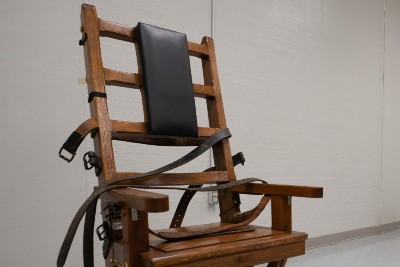
More than a century after acquiring an oak electric chair to execute people sentenced to death, the Commonwealth has conveyed the chair and other implements of execution to the Virginia Museum of History and Culture in Richmond.
“This action closes the era of state-sponsored execution in Virginia,” Gov. Ralph Northam said. “The Commonwealth asked the Museum to accept these items, as they have the curatorial expertise to appropriately manage and interpret such materials. The Commonwealth’s history of using capital punishment is an important part of history, and the Museum is focused on telling Virginia’s full and true story for future generations.”
Northam signed legislation last year to end use of the death penalty, making Virginia the first southern state to do so. Virginia has executed more than 1,300 people in its history, more than any other state.
The chair was used to execute 267 people. It was installed at the Virginia State Penitentiary on Spring Street near downtown Richmond in 1908, and later was moved to Greensville Correctional Center.
When Virginia moved to executions by lethal injection, the chair remained in place.
Also donated to the museum is the medical gurney used for executing people by lethal injection, along with other implements used to carry out executions, including leather straps. Those items were dismantled and removed from Greensville Correctional Center to the museum earlier this week.
Also, this week, in confirmation of the change in law, Northam commuted to life in prison the death sentences of Thomas Porter and Anthony Juniper, the two persons on death row when capital punishment was abolished.
Also as provided in the legislation, Porter and Juniper will not be eligible for parole, any good conduct allowance or any earned sentence credits, or conditional release.










